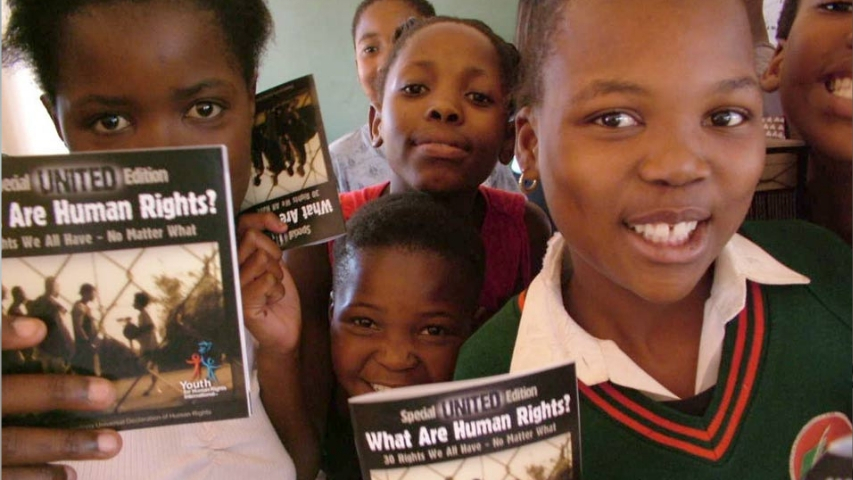
Educate Children about their Human Rights
by Shruthi Venkatesh February 15 2019, 4:42 pm Estimated Reading Time: 3 mins, 12 secsEthical education for a child is necessary at school level. Despite the education about human rights carried out in schools worldwide, human rights violations continue to be a problem in all parts of the world. Education is established as a right in the UN Convention on the Rights of the Child. In short, education is not only itself a human right of the child, it is also an important vehicle for a wider and fuller achievement of all human rights.
The Wales’ Children’s Commissioner Prof Sally Holland has called for a legal obligation on schools to educate children about their rights. “It does make children think about how they should be treated,” Rachael Webb, headmistress of Hafod Primary school, said. When implemented, several children came out to voice that they did not feel safe at home.
Professor Holland also warned that some schools are not doing enough on human rights education of a child. The Welsh Government said the new curriculum will be implemented in 2022 and would ensure children understand its issues.

Teaching children of all ages their fundamental rights.
The BBC reports that The UN Convention of the Rights of the Child includes a right for the child to have a say in decision-making, a right to be safe from abuse and neglect, and a right to an education.
Webb introduced the UN convention into Hafod primary school’s ethos 12 years ago. “Some years ago we had children who were learning about their rights come to us and say they didn't feel safe, not only in the home but in the community as well. [There were] massive implications for the children, to know they were listened to, and there was action.” She also says that children’s rights are now “very well understood” among the community.
The Harold school takes the initiative in a unique manner. The school has put up “worry boxes” all around the campus which is a personalized post box where children could post their concerns and this can let the management know what bothers the young minds. They also teach pupils about their responsibilities to other children. “You have to make it easy for them to understand. So for example the children's right to have an education… means all children should behave in class. They shouldn't disturb other children - [otherwise] they are taking away their rights to have an education and to listen to the teacher,” says Webb. Each class has a “charter” based on the convention, and Webb said their approach also helped make children aware of how others are living around the world.
Professor Holland adds that this is now implemented by many other schools which are a “fantastic job”. Yet, she wanted the children’s right to be put on legal footing, so as to add on the new curriculum. “[Otherwise] we can't ensure that every child in Wales gets the chance to learn about their rights and to experience their rights” she says.
“Sometimes schools have policies that aren’t great really in terms of supporting children’s rights. They may be super-strict policies for example that don’t pay attention to children’s home circumstances and why it’s hard for them to come in a clean tidy uniform every day for example.”
“This isn’t just another topic to be ticked off for children to learn… it’s much more about their fundamental experience throughout their time in school.”
The Welsh Government spokesperson told the Commissioner that the new curriculum will ensure that learners have opportunities to understand and exercise their human and democratic rights - helping them to become ethical, informed citizens.




-173X130.jpg)
-173X130.jpg)
-173X130.jpg)
-173X130.jpg)

_(7)-173X130.jpg)
-173X130.jpg)
-173X130.jpg)